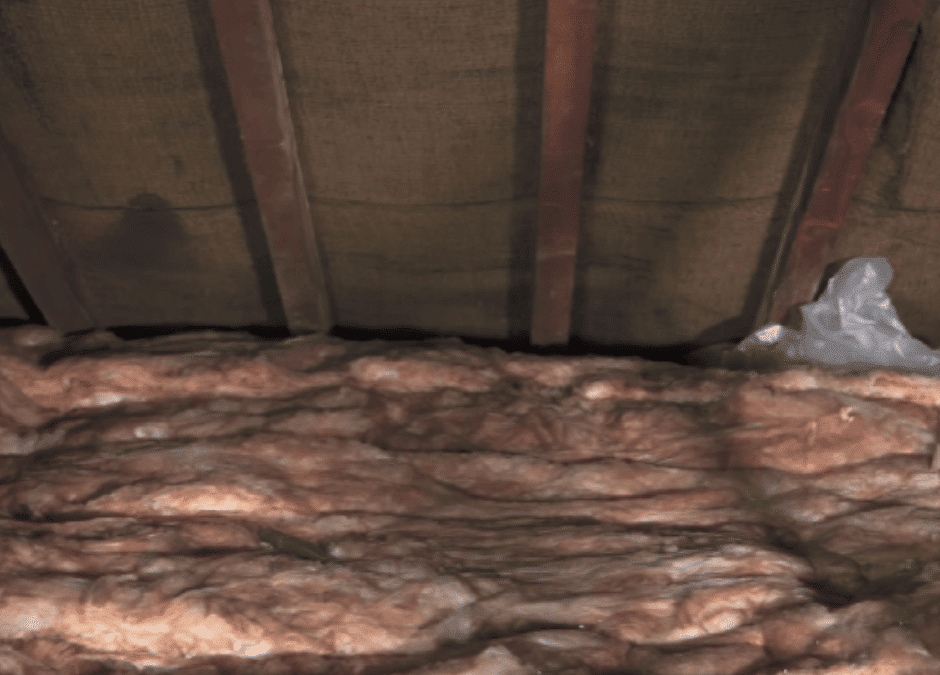Are you tired of dealing with exorbitant energy bills and uncomfortable indoor temperatures in your South Atlanta home? If so, it might be time to take a closer look at your insulation. The effectiveness of insulation plays a crucial role in regulating your home’s temperature and energy efficiency. With the blistering Georgia summers and chilly winters, having proper insulation is essential for keeping your energy costs down and maintaining a cozy living environment. Join us as we explore the key signs of poor insulation and discover how you can identify and address these issues to achieve significant energy savings and year-round comfort. Get ready to transform your home into an energy-efficient haven!
What is Insulation?
Insulation is like a protective shield for your home, creating a barrier that prevents heat transfer between the interior and exterior. It acts as a cozy blanket, trapping air and maintaining stable temperatures inside, regardless of the weather outside. Various insulation materials, such as fiberglass, cellulose, foam, or rock wool, offer unique benefits for different areas of your home. By effectively insulating your walls, attic, and other vulnerable areas, you can enjoy energy efficiency, lower utility bills, and a comfortable living space year-round.
What Are the Main Benefits of Insulation?
Proper insulation offers several advantages for homeowners, regardless of the season. Some of the key benefits include:
- Energy Savings: Insulation helps reduce energy consumption by keeping indoor temperatures stable, reducing the need for heating and cooling systems.
- Enhanced Comfort: Insulation creates a more comfortable living environment by minimizing temperature fluctuations and drafts.
- Environmental Impact: By conserving energy, proper insulation helps reduce carbon emissions and lowers the overall environmental footprint.
Signs Your Home is Under Insulated
Identifying signs of poor insulation can help homeowners take corrective measures and enjoy better energy efficiency and comfort. Look out for the following indicators:
- High Energy Bills: If your energy bills are consistently high, it could be due to inefficient insulation. Upgrading your insulation can lead to significant savings on your monthly utility costs.
- Temperature Fluctuations: Uneven heating or cooling in different rooms may signify insulation issues. Properly insulating your home will ensure consistent and comfortable temperatures throughout every season.
- Drafts and Air Leaks: Feeling drafts around doors and windows suggest inadequate insulation. Sealing these leaks will prevent energy wastage and enhance indoor comfort.
- Cold or Hot Walls: Exterior walls that feel excessively cold in winter or hot in summer can indicate poor insulation. Improving wall insulation will create a more thermally efficient living space.
- Ice Dams: Ice dams forming on the roof during winter may be caused by insufficient attic insulation. Enhancing attic insulation will prevent ice dams and potential water damage.
- Pests and Insects: Pest infestations could be a result of gaps in insulation that provide entry points for pests. Properly sealing insulation will keep unwanted visitors out of your home.
Factors That Reduce the Lifespan of Home Insulation
In order to maintain the effectiveness of home insulation, it’s essential to be aware of factors that can shorten its lifespan:
- Moisture and Water Damage: Insulation exposed to moisture can lose its insulating properties and develop mold or mildew.
- Settling and Compression: Over time, insulation can settle and compress, reducing its ability to trap air and provide adequate insulation.
- Pest Damage: Pests, such as rodents and insects, can damage insulation materials, making them less efficient.
Ways How to Fix a Poorly Insulated House
Addressing poor insulation is crucial for enhancing your home’s energy efficiency and comfort. Here are some effective ways to tackle the problem:
- Schedule a Home Energy Audit: Get a professional energy audit to identify areas of energy loss and insulation deficiencies. This will help you prioritize the improvements needed.
- Choosing the Right Insulation: Select the appropriate insulation type and R-value based on your home’s specific requirements. A professional can guide you in making the best choice.
- Attic Insulation: Properly insulate the attic and seal any gaps or cracks to prevent heat loss. Consider adding blown-in insulation or installing foam boards for maximum effectiveness.
- Wall Insulation: Improve wall insulation by using suitable materials like cellulose or fiberglass, or explore foam insulation for added thermal resistance.
- Crawl Space and Basement Insulation: Don’t overlook these areas, as insulating them will enhance overall energy efficiency and comfort in your home.
- Weatherstripping and Caulking: Seal air leaks around doors and windows using weatherstripping and caulking to prevent energy wastage.
- Sealing Ductwork: Have your ducts inspected and sealed to prevent energy loss and optimize the performance of your heating and cooling systems.
By taking proactive steps to fix poorly insulated areas in your home, you can create a cozy haven that remains comfortable and energy-efficient all year long. These insulation upgrades not only lead to substantial energy savings but also contribute to a more eco-friendly living environment. Embrace these solutions and make your South Atlanta home a place of comfort and sustainability.
Contact Us for Insulation Services
Inadequate insulation can lead to soaring energy bills and discomfort throughout the year. By recognizing the signs of poor insulation and taking appropriate action, homeowners in South Atlanta can enjoy energy savings and enhanced comfort. Don’t let inefficient insulation compromise your home’s efficiency and your family’s well-being. Take charge of your energy usage and stay comfortable year-round. For professional insulation services and expert advice, contact South Atlanta Insulation Experts today! Improve your home’s insulation, save money, and create a cozy living space for your family.

Recent Comments